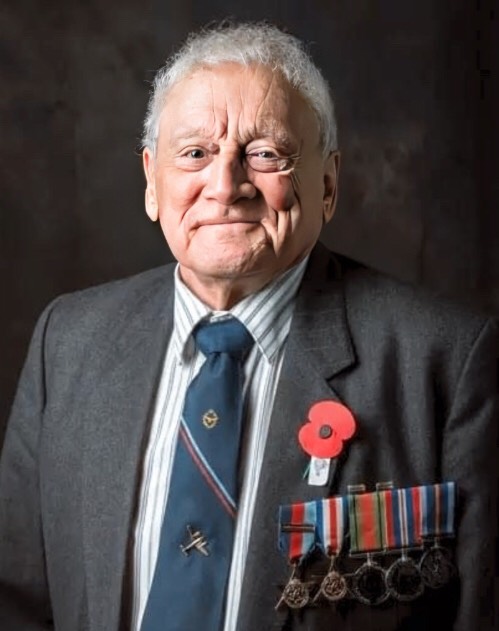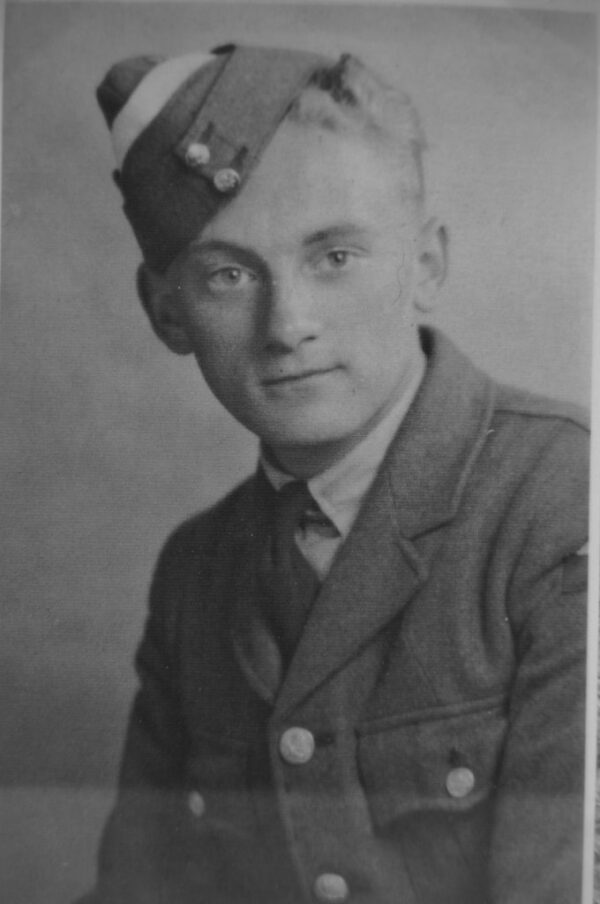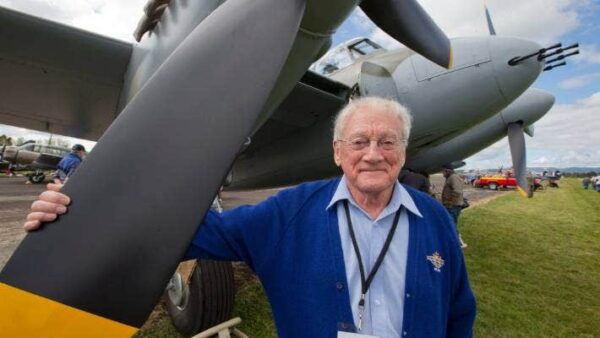News
News
(1923 – 2025)
W/O John Beeching
John Beeching, one of last remaining RAF Bomber Command veterans from World War II, passed away in Nelson, New Zealand on 27 August the age of 101.

John Beeching
(Credit: NZBCA Archive)
John grew up in the East End of London, so was familiar with the damage inflicted on the city in the Blitz. While still in his teens, he volunteered for the Royal Air Force. At the time, Bomber Command losses were climbing fast and the RAF desperately needed more pilots – not only from Britain but the Empire (as it was), including New Zealand.
He trained in Canada, becoming a qualified pilot in July 1943, and after operational training flew his first operations in 169 Squadron at the beginning of 1945. Here he flew the famed De Havilland Mosquito, the Mossie or “Wooden Wonder,’ on night intruder operations against German night fighters over Europe.

John Beeching
(Credit: NZBCA Archive)
The remarkably fast Mosquitos took off later than the heavy bombers, such as Lancasters, and were tasked with reaching the target ahead of the main bomber stream and keeping it clear of enemy fighters. They often flew at low levels. “We’d fly anywhere from thirty thousand feet right down to ground level.”
John said they would also do spoof raids, dropping target indicators on places where the raid wasn’t going to be, with the idea to get the Germans to think that’s where the main raid was going to be. “So, we dropped couple of tons of target indicators to get the Germans going and of course the main bomber stream would turn off and go somewhere else, which was all part and parcel of the deceit, you know.”
After spending time in Edmonton, Canada after the war, John emigrated to New Zealand in 1953, living first in Christchurch, then Wellington before settling in Nelson where he lived for fifty-five years.

John Beeching at Ardmore with the first of the AvSpecs Mosquitoes.
(Credit: NZBCA Archives)
His 100th birthday in October 2024 also marked his retirement! John joined the Cawthron Institute, New Zealand’s largest science organisation after he had hit retirement age. He has been working there three mornings a week, fixing everything from microscopes to test tubes. It was only on the day of his 100th birthday last year that he finally hung up his tools.
NZBCA sends its sincere condolences to all of John’s family.
September 14, 2025